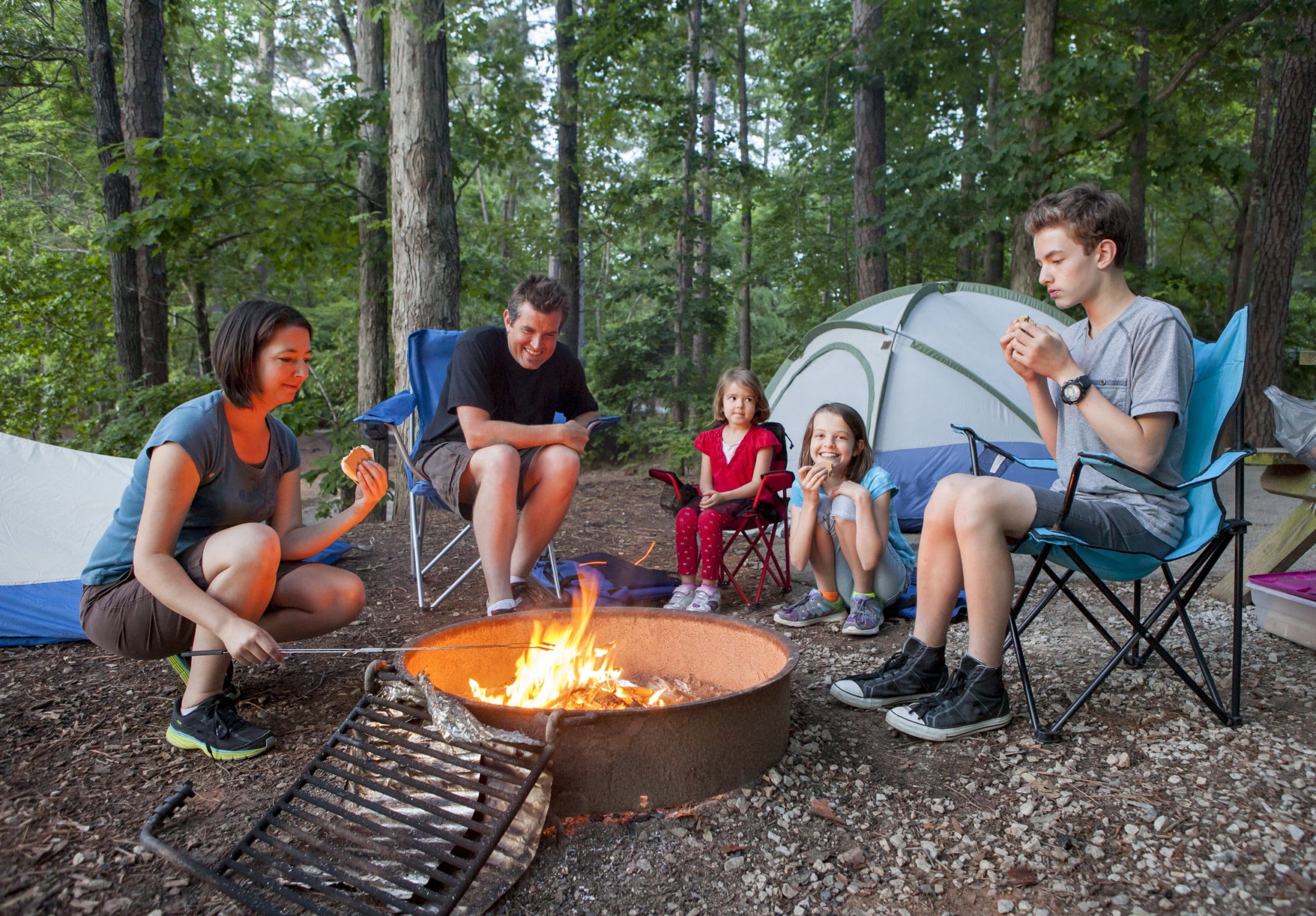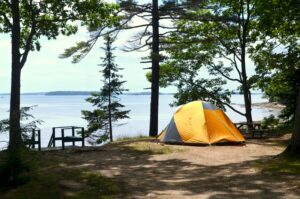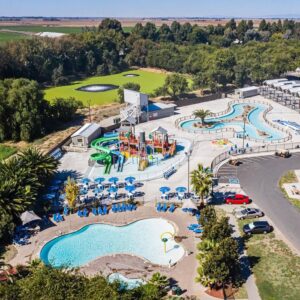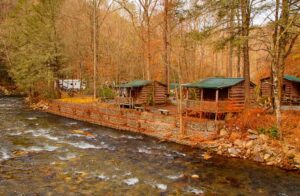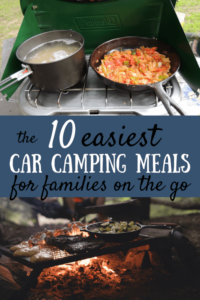Are you looking for a way to reconnect with your family and create lasting memories? Look no further than a family camping trip! Camping allows you to step away from the hustle and bustle of everyday life and immerse yourself in nature. It provides an opportunity to bond with your loved ones, learn new skills, and explore the great outdoors. In this comprehensive guide, we will walk you through the essentials of planning a successful family camping trip. From choosing the perfect destination to packing the right gear, we’ve got you covered.
1. Choosing the Perfect Destination
The first step in planning a family camping trip is selecting the perfect destination. Consider the interests and preferences of your family members. Are they nature enthusiasts who enjoy hiking and wildlife spotting? Or do they prefer a more relaxed camping experience with amenities such as swimming pools and playgrounds? Research various camping sites and national parks to find the one that best suits your family’s needs.
Some popular family-friendly camping destinations include:
- Yosemite National Park, California
- Yellowstone National Park, Wyoming
- Great Smoky Mountains National Park, Tennessee
- Grand Canyon National Park, Arizona
These destinations offer a range of activities and amenities that cater to families. Whether you’re looking to hike through breathtaking landscapes or enjoy water sports, there’s something for everyone.
2. Planning Your Itinerary
Once you have chosen your destination, it’s time to plan your itinerary. Research the activities and attractions available in the area and create a schedule that accommodates everyone’s interests. Consider the duration of your trip and how much time you want to spend on each activity. Leave some flexibility in your schedule for spontaneous adventures and relaxation.
Some popular activities for family camping trips include:
- Hiking: Explore the scenic trails and discover hidden gems.
- Fishing: Teach your children the art of fishing and enjoy a fresh catch for dinner.
- Wildlife watching: Observe animals in their natural habitat and learn about their behaviors.
- Campfire storytelling: Share spooky stories and create lasting memories around the campfire.
Remember to consider the age and physical capabilities of your family members when planning activities. Opt for shorter and easier trails if you have young children or elderly family members.
3. Packing the Essentials
Packing the right gear is crucial for a successful camping trip. Make a checklist of essential items to ensure that you don’t forget anything. Here are some camping essentials:
- Tent: Choose a tent that accommodates your family size and provides enough space for everyone to sleep comfortably.
- Sleeping bags and pillows: Invest in quality sleeping bags and pillows to ensure a good night’s sleep.
- Cooking equipment: Pack a portable stove, pots, pans, and utensils for cooking meals.
- First aid kit: Be prepared for any emergencies with a well-stocked first aid kit.
- Outdoor clothing: Pack appropriate clothing for various weather conditions, including rain gear, warm layers, and sturdy shoes.
- Food and water: Plan your meals in advance and pack non-perishable food items. Don’t forget to bring an ample supply of water.
Remember to check the camping regulations of your chosen destination to ensure that you comply with any restrictions on campfires, food storage, or waste disposal.
4. Preparing for the Unexpected
While camping is a fun and exciting adventure, it’s important to be prepared for the unexpected. Familiarize yourself with the potential risks and hazards of the camping site and take necessary precautions. Here are some tips to help you prepare:
- Research the weather conditions: Check the weather forecast before your trip and pack accordingly.
- Learn basic first aid: Take a first aid course and learn essential skills such as CPR, treating minor injuries, and identifying poisonous plants.
- Inform someone about your plans: Share your camping itinerary with a trusted friend or family member in case of emergencies.
- Pack a safety kit: Include items such as a whistle, flashlight, extra batteries, and a map of the area.
By taking these precautions, you can ensure the safety and well-being of your family during the camping trip.
5. Engaging in Outdoor Learning
One of the greatest benefits of a family camping trip is the opportunity for outdoor learning. Encourage your children to explore nature, ask questions, and discover new things. Engage them in educational activities that enhance their understanding of the environment and wildlife. Here are some ideas:
- Nature scavenger hunt: Create a list of items for your children to find in nature, such as different types of leaves, animal tracks, or bird feathers.
- Star gazing: Spend an evening observing the night sky and teach your children about constellations and planets.
- Plant identification: Go on a nature walk and teach your children how to identify different plant species.
- Wildlife photography: Encourage your children to capture photos of the wildlife they encounter during the camping trip.
These activities not only foster a love for nature but also cultivate a sense of curiosity and wonder in your children.
6. Disconnecting from Technology
In today’s digital age, it’s easy to get caught up in technology and screen time. A family camping trip provides an opportunity to disconnect from technology and reconnect with each other. Leave your electronic devices behind and embrace the simplicity of nature. Engage in meaningful conversations, play games, and enjoy quality time together without distractions. Encourage your children to appreciate the beauty of the natural world and cultivate a sense of gratitude for the simple pleasures in life.
7. Practicing Leave No Trace Principles
When exploring the great outdoors, it’s important to minimize your impact on the environment. Teach your children about the importance of preserving nature for future generations by practicing Leave No Trace principles. These principles include:
- Dispose of waste properly: Pack out all your trash and leave the camping site cleaner than you found it.
- Respect wildlife: Observe animals from a distance and avoid feeding or approaching them.
- Stay on designated trails: Stick to established trails to minimize damage to vegetation and wildlife habitats.
- Minimize campfire impacts: Follow the camping regulations and guidelines for campfires. Extinguish fires completely before leaving the site.
By instilling these principles in your children, you can raise environmentally conscious individuals who understand the importance of conservation.
8. Creating Lasting Memories
A family camping trip is an opportunity to create lasting memories that your children will cherish for a lifetime. Disconnect from the distractions of everyday life and immerse yourself in the beauty of nature. Engage in activities that promote bonding and create shared experiences. Capture these moments through photographs and journaling. Encourage your children to reflect on their camping adventures and express their thoughts and emotions. These memories will serve as a reminder of the love and connection you share as a family.
Conclusion
A family camping trip is an adventure that offers countless benefits for both parents and children. It allows you to reconnect with nature, disconnect from technology, and create lasting memories with your loved ones. By choosing the perfect destination, planning your itinerary, packing the essentials, and preparing for the unexpected, you can ensure a successful and enjoyable camping experience. Engage in outdoor learning activities, practice Leave No Trace principles, and embrace the simplicity of nature. As you embark on this journey, remember to savor each moment and cherish the time spent together as a family. Happy camping!
FAQs After The Conclusion:
1. How do I choose the perfect camping destination for my family?
When choosing a camping destination for your family, consider the interests and preferences of each family member. Research various camping sites and national parks to find one that offers activities and amenities that cater to your family’s needs.
2. What activities can we do during a family camping trip?
There are plenty of activities you can do during a family camping trip, such as hiking, fishing, wildlife watching, and campfire storytelling. Choose activities that are suitable for the age and physical capabilities of your family members.
3. What essential items should I pack for a family camping trip?
Some essential items to pack for a family camping trip include a tent, sleeping bags and pillows, cooking equipment, a first aid kit, outdoor clothing, and an ample supply of food and water. Make a checklist to ensure you don’t forget anything.
4. How can I ensure the safety of my family during a camping trip?
To ensure the safety of your family during a camping trip, research the weather conditions, learn basic first aid skills, inform someone about your plans, and pack a safety kit with essential items such as a whistle, flashlight, extra batteries, and a map of the area. It’s also important to familiarize yourself with the potential risks and hazards of the camping site and take necessary precautions.
5. How can I make the camping trip educational for my children?
You can make the camping trip educational for your children by engaging them in outdoor learning activities. Create a nature scavenger hunt, spend an evening stargazing and teaching them about constellations, go on a plant identification walk, or encourage them to capture photos of the wildlife they encounter. These activities foster a love for nature and cultivate a sense of curiosity and wonder in your children.
6. How can I encourage my family to disconnect from technology during the camping trip?
To encourage your family to disconnect from technology during the camping trip, lead by example. Leave your electronic devices behind and embrace the simplicity of nature. Engage in meaningful conversations, play games, and enjoy quality time together without distractions. Encourage your children to appreciate the beauty of the natural world and cultivate a sense of gratitude for the simple pleasures in life.
7. What are Leave No Trace principles and why are they important?
Leave No Trace principles are guidelines that promote responsible outdoor behavior and minimize the impact on the environment. They include disposing of waste properly, respecting wildlife, staying on designated trails, and minimizing campfire impacts. These principles are important because they help preserve the natural beauty of camping sites, protect wildlife habitats, and ensure that future generations can enjoy the outdoors.
8. How can I create lasting memories during a family camping trip?
To create lasting memories during a family camping trip, engage in activities that promote bonding and create shared experiences. Disconnect from the distractions of everyday life and immerse yourself in the beauty of nature. Capture these moments through photographs and journaling. Encourage your children to reflect on their camping adventures and express their thoughts and emotions. These memories will serve as a reminder of the love and connection you share as a family.
Summary
A family camping trip is an opportunity to reconnect with your loved ones, create lasting memories, and immerse yourself in the beauty of nature. By choosing the perfect destination, planning your itinerary, packing the essentials, and preparing for the unexpected, you can ensure a successful and enjoyable camping experience. Engage in outdoor learning activities, practice Leave No Trace principles, and embrace the simplicity of nature. Disconnect from technology and savor each moment spent together as a family. A family camping trip is an adventure that offers countless benefits for both parents and children. It allows you to bond, learn new skills, and appreciate the wonders of the natural world. So gather your gear, choose your destination, and embark on a journey that will create lifelong memories for your family.

